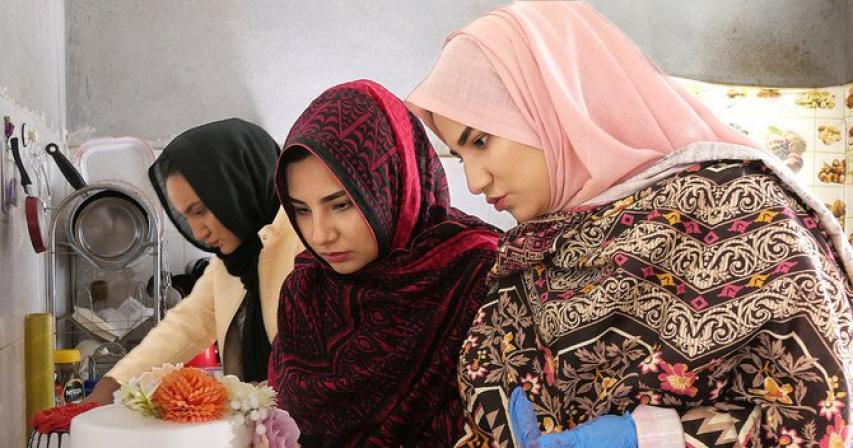Rising stars: Pakistani sisters fight terror with sweet treats
- 3 years ago

For Balochistan’s “Baker Sisters,” Feb. 13 was a busy day as the three women scrambled to prepare and deliver more than two dozen cakes ahead of Valentine’s Day in Quetta, capital of Pakistan’s troubled southwest province.
Urooj Fatima, 22, Sumaiya Batool, 23, and Aneesa Batool, 25, launched their online pastry shop, Plates of Flavor, less than two years ago after their father was forced to shut down his 35-year-old bakery due to security threats.
Plates of Flavor was an instant success, and the sisters say they could not be happier carrying on their father’s legacy while also earning an honest living during a coronavirus pandemic that has pushed millions of people around the world into unemployment.
Hundreds of members of the Shiite Hazara community in Pakistan — to which the three sisters belong — have been killed over the last decade in random attacks, bombings in schools and crowded markets, and brazen ambushes of buses on Pakistani roads.
Despite improved security in recent years, partly because most Hazaras have moved into two large, guarded neighborhoods in Quetta, attacks continue, including an incident last month in which Daesh militants murdered 11 Hazara miners.
“My father had a flourishing baking business in Kuchlak, about 30 km from the provincial capital, but he lost it amid sectarian attacks in Quetta and its suburbs,” Urooj Fatima told Arab News.
Shutting down the bakery was a “financial bombshell” for the family, Fatima said, at a time when the siblings were still studying.
“After our graduation, we sisters decided to set up an online business,” she added. “We have good culinary skills and decided to capitalize on that.”
The bakery has since diversified its menu as its online footprint has grown, and regularly supplies biryani rice, sandwiches, curry and even Chinese dishes to weddings and other events.
“It’s sad that many parents in our society still pray for sons and consider their daughters as some kind of a burden,” Fida Hussain, the father of the girls, told Arab News.
“I want to tell them to look at my daughters and see how they have strengthened the family and met its financial needs.”
Hussain said that when he received threatening letters from sectarian outfits and struggled with what to do, it was his daughters who encouraged him to close his business.
“My daughters emboldened me, asking me not to put my life at risk.”
According to the Balochistan Shiite Conference, hundreds of families in Balochistan have abandoned their businesses due to security threats over the last decade. Syed Dawood Agha, the group’s president, said 80,000 people from the Hazara community had migrated to other countries to escape security threats and start afresh.
But Hussain said that what happened to him was “fate” and he is determined to see his daughters succeed as entrepreneurs. He now helps them buy ingredients and often delivers their orders for them.
“When my wife told me that our daughters had set up an online page and started taking food and bakery orders, I encouraged them and did my best to help them with my expertise and experience,” he said.
Sumaiya Batool told Arab News the bakery’s initial marketing strategy included distributing free food to introduce people to their menu.
“We also participated in a food festival in Marriabad in 2019, where we introduced a fusion of food and bakery items that many people had never tasted before,” she said.
“Fortunately, we are good at this since our mother has roots in Iran and we make Iranian dishes with Pakistani spices.”
In the kitchen, young Urooj Fatima mixed more butter into her dough, and said she and her sisters had been working for 20 hours without even taking a nap.
“People all over Quetta are now following us on social media,” she said. “We keep receiving orders. But we need to do a lot more to expand our kitchen.”
Comments